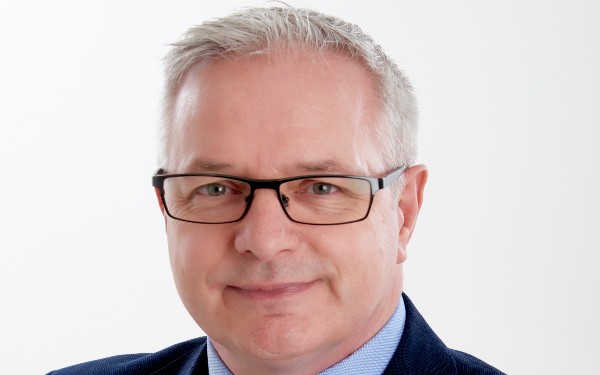
Story updated 30 April 2021
Adult social care referrals have spiked since November 2020, the incoming president of the Association of Directors of Adult Social Services (ADASS) has warned.
Three-quarters of directors have reported a rise in hospital discharge referrals, 70% a hike in requests for help for people with mental health problems, 57% a rise in domestic abuse and 48% a jump in referrals among people who had not been admitted to hospital.
The results come from ADASS’s latest survey of directors, and were reported today by Stephen Chandler in his inaugural speech at ADASS’s annual spring seminar.
The findings come on top of previous hikes in demand for care reported last year by ADASS on the back of the pandemic. In November, it said that 70% of directors had seen a rise in hospital discharge referrals, 69% in domestic abuse or safeguarding cases and 63% in community referrals, since March 2020.
‘Terrible cost’ of Covid
In his speech, Chandler, the director at Oxfordshire, highlighted the “terrible cost” of Covid, citing the loss of 850 care workers, almost 50 social workers and many older and disabled people, alongside many hidden costs.
“What has not been highlighted strongly enough is the disproportionate impact on the poorest and most marginalised in our communities.
“Covid has shown the impact of a lack of investment, long-term planning, and resilience in the social care sector. It has shown the lack of value that successive governments have placed on our lives when we are older, disabled or caring for others.”
However, he also said it had shown “some of the best of individuals, communities, our fantastic support providers, and those involved in social care in its broadest sense – and last but by no means least, local government as leaders”.
‘Creative support from social workers’
He added: “You will all, like me, be aware of the creative ways in which social workers and providers have worked to maintain support or to deliver support during lock down when buildings were no longer available. We cannot and must not allow this to be overlooked or to only be seen as a pandemic response.”
Chandler, who succeeds Norfolk’s James Bullion as president, also looked ahead to the government’s planned – and long-awaited – reform of adult social care and its funding, with the government expected to set out its initial thinking in next month’s Queen’s Speech.
Echoing Bullion – in a recent interview with Community Care – he called for a “loud, unified, positive and engaging” voice from the social care sector to highlight its positive impact, in order to influence the shape of the government’s reforms.
‘We must boldly call out our impact’
“We need to boldly call out our impact, describe the importance of what we do, emphasise it’s for you if you are a young person with a learning disability who’s enabled to live a good life, it’s for me if I am a parent managing the impact of a life-changing accident or illness, it’s for you if you are managing a long term health condition or social circumstance.
“It’s for you if you are older and managing the impacts of old age, loneliness, dementia or illness. And it is so much more – for you who sleeps rough, is mentally ill and an addict. It’s for me if I have a learning disability or mental ill health and get caught up with the police for want of care and support.
“It’s for you if the only person you ever see abuses you. Social work and social care are about all of us; all of our lives which should be good lives, could be better lives.”
Speaking the following day at the seminar, health and social care secretary Matt Hancock said the government would bring forward proposals later this year to “fix a system that has been unreformed for so long” and “put social care on a firm footing for years to come”.



 Bournemouth, Christchurch and Poole
Bournemouth, Christchurch and Poole  Hampshire County Council
Hampshire County Council  Oxfordshire County Council
Oxfordshire County Council  South Gloucestershire Council
South Gloucestershire Council  Wokingham Borough Council
Wokingham Borough Council  Providing a lifeline for social workers who want to get back into the sector
Providing a lifeline for social workers who want to get back into the sector  The highs and lows of a children’s services’ transformation journey
The highs and lows of a children’s services’ transformation journey  Embedding learning in social work teams through a multi-agency approach
Embedding learning in social work teams through a multi-agency approach  The family safeguarding approach: 5 years on
The family safeguarding approach: 5 years on  Harnessing social work values to shape your career pathway
Harnessing social work values to shape your career pathway  Workforce Insights – showcasing a selection of the sector’s top recruiters
Workforce Insights – showcasing a selection of the sector’s top recruiters  Join our team to help technology enabled care transform lives in Nottinghamshire
Join our team to help technology enabled care transform lives in Nottinghamshire  Free CPD on Parkinson’s for health and social care staff
Free CPD on Parkinson’s for health and social care staff 

 Facebook
Facebook X
X LinkedIn
LinkedIn Instagram
Instagram
Here’s a bit of speculation. Could the neglect that we are not meant to admit due to “remote working” * be a contributory factor to this?
* phone or Zoom calls passed off as person centered care.